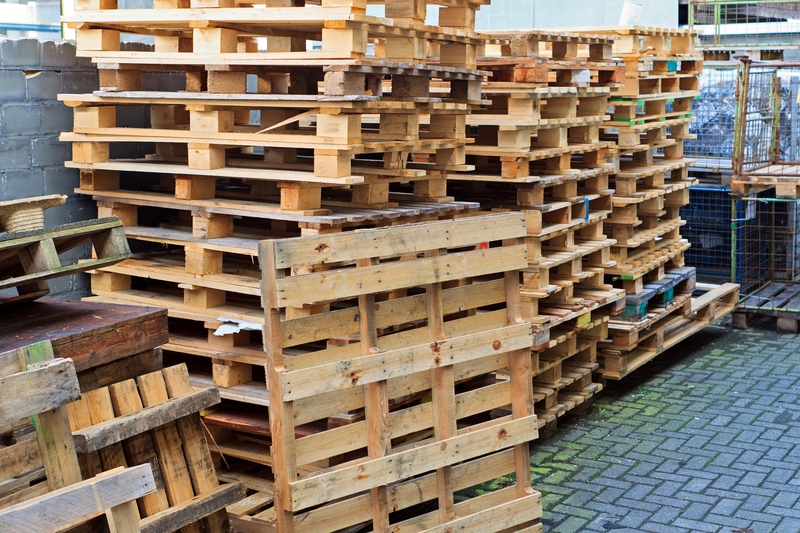Efficient Bulky Waste Removal on a Budget: A Comprehensive Guide
When it comes to household and business clean-outs, bulky waste removal is a critical task that can quickly become daunting. Large, awkward items--old furniture, appliances, mattresses, and yard debris--pile up quickly and demand special attention. Yet, disposing of these items efficiently and affordably doesn't have to strain your budget or the environment. In this in-depth guide, we'll explore proven strategies for cost-effective, efficient bulky waste disposal that respect your wallet and the world.

Understanding Bulky Waste
Before exploring removal methods, it's crucial to define bulky waste. Commonly referred to as large waste, heavy trash, or oversize refuse, it comprises items too large or heavy for regular municipal trash collection. Examples include:
- Household furniture: sofas, beds, dressers, tables
- Appliances: fridges, ovens, washing machines
- Yard waste: large tree branches, old sheds, fencing
- Mattresses and box springs
- Carpets and rugs
- Electronics : (in some cases) TVs, computers, printers
Why Bulky Waste Removal Matters
Improper disposal of bulky items can lead to a host of issues:
- Environmental harm: Toxic components (like refrigerants in old fridges) can pollute soil and water. Items left on curbs may become hazards or contribute to urban blight.
- Legal repercussions: Many cities and councils fine residents and businesses for illegal dumping or failing to comply with waste regulations.
- Health risks: Large discarded items can harbor pests or create fire hazards.
Budget-Friendly Bulky Waste Removal Solutions
1. Schedule Municipal Bulky Waste Pickup
Many local governments offer periodic or by-appointment curbside collection of bulky trash. These municipal services are the most cost-effective (and often free) option for residents. To maximize efficiency and compliance:
- Check your local authority's website for collection schedules, item limits, and booking requirements.
- Prepare items properly: Remove doors from fridges. Tie up mattresses to prevent spread of pests. Dismantle large furniture if possible.
- Avoid surprise fees or non-collection by carefully following guidelines (such as item size, quantity, separation requirements.)
2. Visit Your Local Recycling Centre or Civic Amenity Site
Many town and city councils operate household waste recycling centers able to accept much of your bulky waste, including furniture, appliances, and electronics. Benefits include:
- Lower or zero fees: Residents are often entitled to a certain number of free drop-offs per year.
- Recycling and repurposing: Many centers sort waste for recycling, helping reduce landfill use and environmental impact.
- Borrow or rent a truck or trailer and group items with neighbors to share transportation costs.
- Sort waste in advance (scrap metal, electronics, wood, general waste) to streamline drop-off and maximize recycling potential.
3. Hire a Bulky Waste Collection Service on a Budget
Professional junk removal companies can be a swift solution, especially for large-scale clear-outs or when manual handling is difficult. Here's how to keep costs in check:
- Get multiple quotes: Compare prices from several licensed providers. Look for flat rates or per-item deals.
- Prepare and consolidate waste: The less sorting and labor required, the lower your cost. Place all items in an accessible location.
- Check for community discounts: Some companies offer reduced rates for seniors, students, nonprofits, or during off-peak seasons.
- Share service with neighbors: Split the truck or container rental to benefit from group pricing.
4. Opt for a Skip (Dumpster) Rental: Right-sizing Saves Money
For major renovation, garden overhauls, or moving, renting a skip (also known as a dumpster) may be most **efficient**. Be budget-savvy by:
- Choosing the smallest skip that meets your needs--larger skips cost significantly more, and overfilling leads to penalty fees.
- Filling strategically: Disassemble items and break down materials to maximize space utilization.
- Sharing with neighbors: Jointly renting a skip saves everyone a bundle on disposal costs.
- Avoiding prohibited waste: Hazardous chemicals, liquids, or electronics may not be accepted--follow guidelines to dodge surcharges.
5. Donate, Sell, or Give Away Usable Bulky Items
Not every bulky item is destined for the landfill. Donation and reuse is the most sustainable and budget-friendly option:
- Charities and thrift shops: Many accept gently used furniture and appliances, often offering pickup at no charge.
- Online platforms: Websites like Freecycle, Craigslist, Facebook Marketplace, or Nextdoor connect you with people seeking free or low-cost items.
- Local community groups: School fundraisers, shelters, or nonprofits may welcome specific items like beds, desks, or computers.
How to Reduce Bulky Waste Generation
The most effective, budget-minded waste solution is always waste prevention. Smart purchasing and consumption habits will minimize the need for bulky waste disposal:
- Buy durable goods: Invest in quality items that last longer, even if slightly more expensive up front.
- Repurpose and repair: Furniture and appliances can be refreshed or upcycled instead of discarded.
- Borrow or rent: For items you need only temporarily (garden tools, event furniture), borrow from neighbors or rent from suppliers rather than buy.
- Plan ahead: Disassemble modular furnishings for easier transport and storage; opt for designs with recyclable components.
Money-Saving Tips for Affordable Bulky Waste Clearance
A. Group and Coordinate Removals
Many municipalities and service providers charge a minimum call-out or per-load fee. The more items you can remove at once, the more cost-effective per-item removal becomes. Some top tips:
- Coordinate with neighbors: Pool resources for a shared skip, truck rental, or private collection.
- Declutter in phases: Temporarily store bulky goods until you have enough to fill a skip or qualify for a bulk pickup.
B. Sort and Disassemble Bulky Waste
Breaking down items into components saves both space and money, especially with skip rentals or drop-off facilities. For example:
- Remove legs and cushions from sofas and chairs.
- Detach appliance doors for safety and compactness.
- Sort by material: Separate metal, wood, fabric, and plastic to ease recycling and streamline disposal.
C. Compare and Negotiate Removal Costs
Don't assume the first quote is the best. Prices vary based on season, demand, and regional rates. Save by:
- Comparing at least 3 providers before committing.
- Negotiating for better rates, especially if you're a repeat customer or can offer payment in advance.
- Seeking hidden discounts for off-peak times, large loads, or special circumstances (e.g., senior citizens).
Sustainable Bulky Waste Disposal
Doing bulky waste disposal on a budget doesn't have to mean harming the environment. Consider:
- Recycling Programs: Many cities divert appliances and electronics to recycling schemes that reclaim valuable or hazardous materials.
- Repurposing: Timber from old furniture or fences can become firewood or garden beds. Metal scraps fetch value at local yards.
- Donation: Even damaged furniture may be useful to animal shelters or for creative upcycling projects.

Common Pitfalls to Avoid in Bulky Waste Removal
- Ignoring local bylaws or collection rules: This can result in fines or waste left uncollected.
- Overfilling skips or bins: Safety regulations prohibit overflowing containers; excess may be left behind or incur charges.
- Hiring unlicensed carriers: These may illegally dump your waste, leaving you liable for prosecution.
- Including hazardous materials: Remove batteries, chemicals, and paint; these need separate handling and disposal.
Conclusion: Affordable, Efficient Bulky Waste Solutions are within Reach
Whether you're reclaiming a cluttered garage, preparing for a move, or renovating your home, efficient bulky waste removal on a budget is absolutely possible. By taking advantage of municipal services, recycling centers, professional removal companies, and donation options, you can clear away heavy trash without overspending or harming the environment.
Remember to:
- Plan ahead and consolidate items to save time and money.
- Research all available disposal options in your area.
- Prioritize reuse and recycling where feasible.
- Stay informed about local policies to avoid penalties.